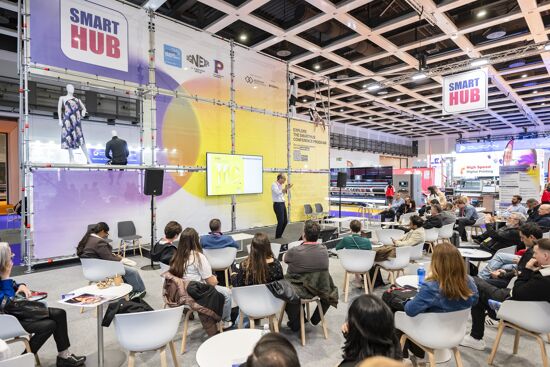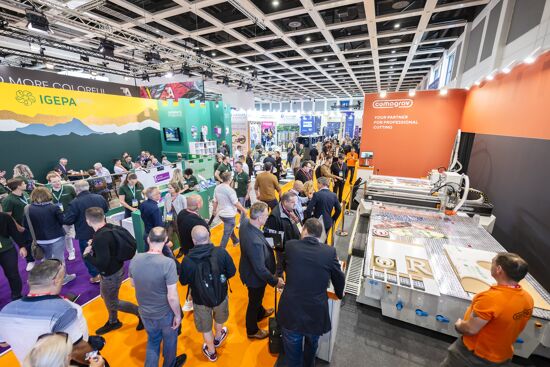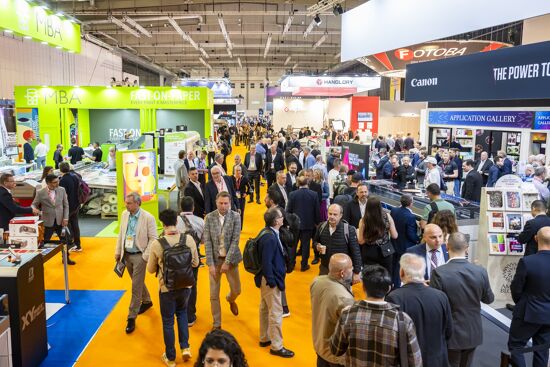Lexmark makes green commitment with carbon neutral pledge

Imaging solutions provider Lexmark has set out plans to further enhance its environmental credentials by becoming fully carbon neutral by 2035.
The company has made a number of major advancements with its sustainable goals during recent years and has been able to reduce its global emissions by 62% since 2025. It is also on track to meet a 40% reduction target for the 10-year period between 2015 and 2025.
Lexmark said these targets have been hit by lowering energy and new plastics use, as well as re-using products, global recycling efforts and engineering durable products that are built to last.
In order to meet the 2035 neutrality goal, Lexmark will continue to pursue and invest in new programs across its global business.
“Lexmark has long been dedicated to reducing our environmental impact; we have led the way on sustainability in our business and for our customers, and we are determined to be carbon neutral by 2035,” Lexmark president and chief executive Allen Waugerman said.
“It is the responsible thing to do for the environment, and it is good for our customers - reducing their costs and helping them meet their own carbon neutrality goals through longer-lasting and lower-energy use devices.”
Some of the new and continuing programs Lexmark will commit to as part of its carbon neutral pledge include its Cartridge Collection Program, which, established in 1991, has so far prevented 100 million cartridges operation from ending up in landfill
Post consumed recycled plastic (PCR) from cartridges that cannot be reused is made into new cartridges and components for Lexmark's printers and multi-function printers (MFPs). Of Lexmark’s current portfolio of devices, 92% of printer models contain PCR content, with more than 80% of those containing in excess of 30% PCR content.
Lexmark’s ongoing commitment also include ensuring its devices are built for a long life and do not need to be replaced or recycled in the first instance, with 96% of its devices meeting the Energy Star meet high standards of energy efficiency certification.
However, for devices do eventually reach their end-of-life, Lexmark re-uses as much of the old material as possible, with 39% of plastic in new devices and 37% in branded cartridges reclaimed.
In addition, Lexmark customers are able to take advantage of a partnership with PrintReleaf, which measures paper usage and reforesting to ensure trees cut down to manufacturer paper are replaced.
John Gagel, chief sustainability officer at Lexmark, added: “We’ve already made great progress as a business. We’ve been working globally for many years to continually reduce our carbon footprint, and the infrastructure we have in place around the world positions us to meet our 2035 carbon neutrality goal.”
Topics
Interested in joining our community?
Enquire today about joining your local FESPA Association or FESPA Direct
Recent news

Industry Experts Explore the Evolution of Smart Manufacturing in the Textile Industry
A FESPA SmartHUB roundtable at Personalisation Experience 2025 discussed smart manufacturing's transformative impact on the textile industry. Experts highlighted the shift to on-demand customisation, driven by digital printing, data analytics, and automation. Key takeaways included enhanced machine control, significant waste reduction through intelligent software and colour management, and improved sustainability via energy efficiency and near-shoring, ensuring agility and environmental responsibility in textile production.

FESPA 2025 gathers leading visionaries from across the speciality print industry in Berlin
FESPA Global Print Expo 2025, European Sign Expo and Personalisation Experience (6 – 9 May 2025, Messe Berlin, Germany) welcomed Visionaries from across the speciality print industry to shape the future of print, develop forward-thinking business strategies, and explore innovative ways to translate emerging industry trends into tangible growth opportunities.

Exploring Cutting-Edge Textile Printing Innovation with Adobe Print Engine 7
Adobe PDF Print Engine 7, launched at FESPA Global Print 2025, significantly advances textile printing. Debbie McKeegan shares how it automates non-white substrate management and RGB colour handling, expands colour gamuts with in-RIP multicolour transparency blending, and streamlines workflows for efficiency and sustainability. This update boosts customisation, reduces waste, and positions businesses at the forefront of digital print innovation.

FESPA Global Print Expo 2025 - Overall Highlights
FESPA Global Print Expo, Europe's leading print and signage exhibition returned to Messe Berlin from 6 - 9 May 2025.